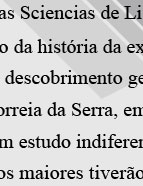

................................
Simultaneously, the "art of negotiation" was gaining traction with the emergence of early manuals that transcended the commonplaces found in most works on the "perfect ambassador," in particular Abraham Wicquefort's Mémoires Touchant les Ambassadeurs et les Ministres Publics (1676) and the monumental Corps Universel Diplomatique du Droit Gens (1726-1739) by Jean Dumont, completed by Rousset de Missy, which compiled European treaties from 315 to 1730.
The Enlightenment era had an ambiguous approach to history. On the one hand, the rationalism of philosophers brought undeniable progress to critical thinking, exemplified by Voltaire’s Essai sur les moeurs et l’esprit des nations, while on the other, this philosophical history denied history itself by using it as a weapon against fanaticism and a battleground for ideological confrontation.
With the Revolution, and under the influence of Romanticism and nationalism, Europe experienced a notable surge in studies that began to focus more on archival sources in large repositories, with the latter becoming available to the public as a result of the principle of the dissemination of state archives as national possessions. The possibility of consulting documents prior to 1858—the date adopted by most countries—transformed them from mere administrative and bureaucratic repositories into an inexhaustible field of historical study. Even Pope Leo XIII opened the Vatican's Archivio segreto in 1881.
Institutions such as the École des Chartes (Paris, 1821), the Institut für Österreichische Geschichtsforschung (Vienna, 1854), the Escuela de Diplomática (Madrid, 1856), and the Scuola di Paleografia e Diplomatica (Florence, 1857) significantly shaped the organisation of archives. Scholarly history was developing, finding its first model in Prussia, with prestigious collections such as the Monumenta Germaniae Historiae (published from 1826) and the alliance between research and teaching in the form of seminars at the University of Humboldt in Berlin (1810), a model that contributed to securing the effort and continuity of historical research.
